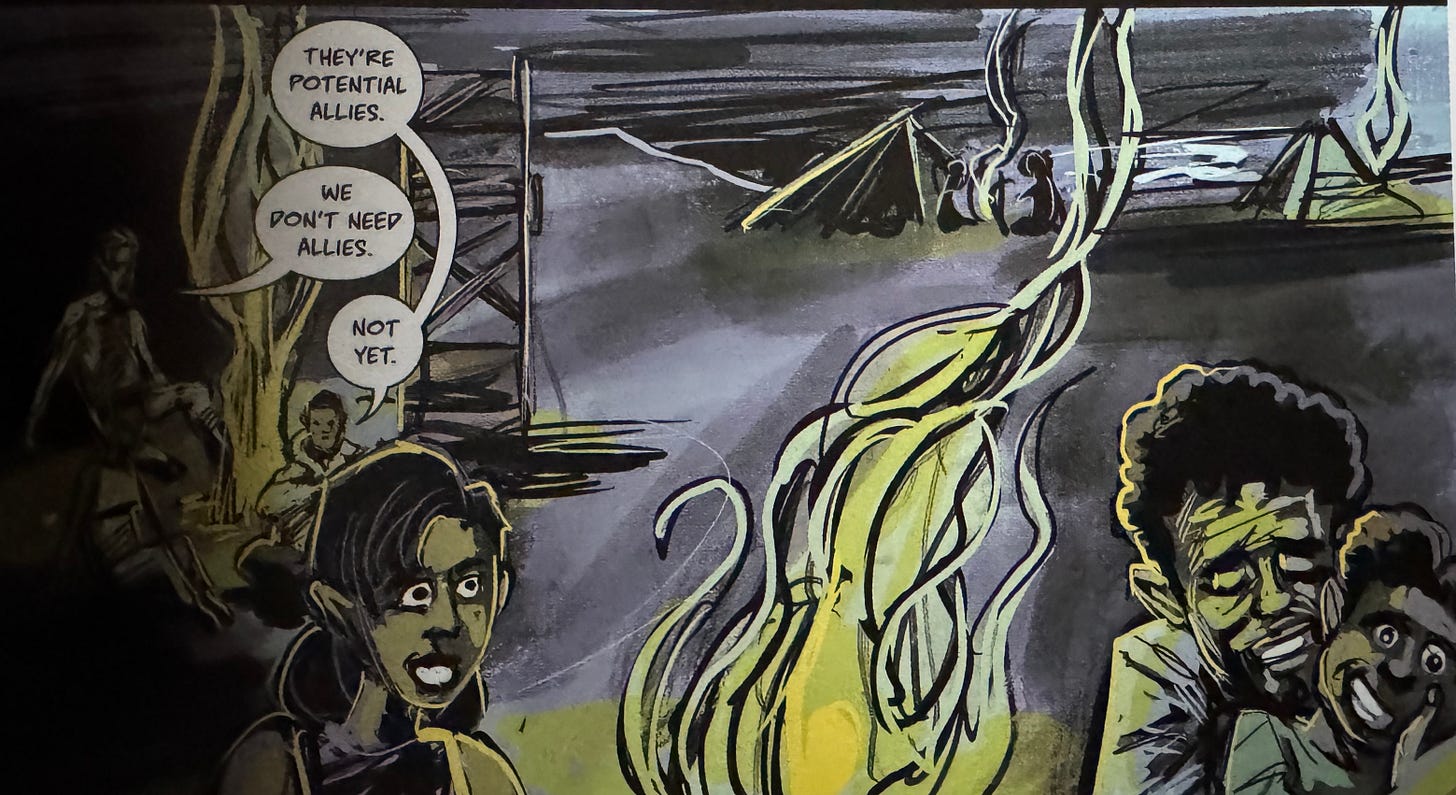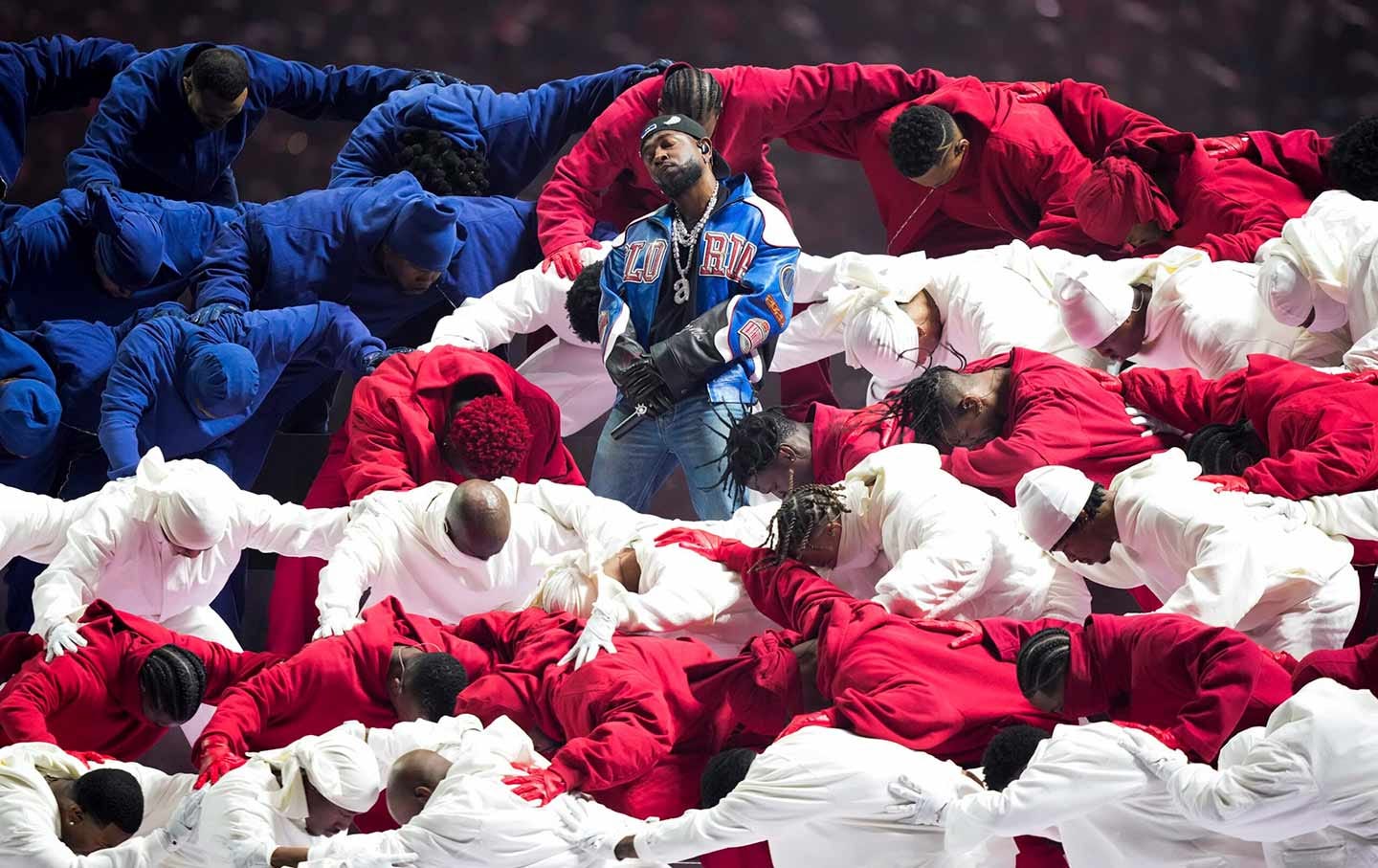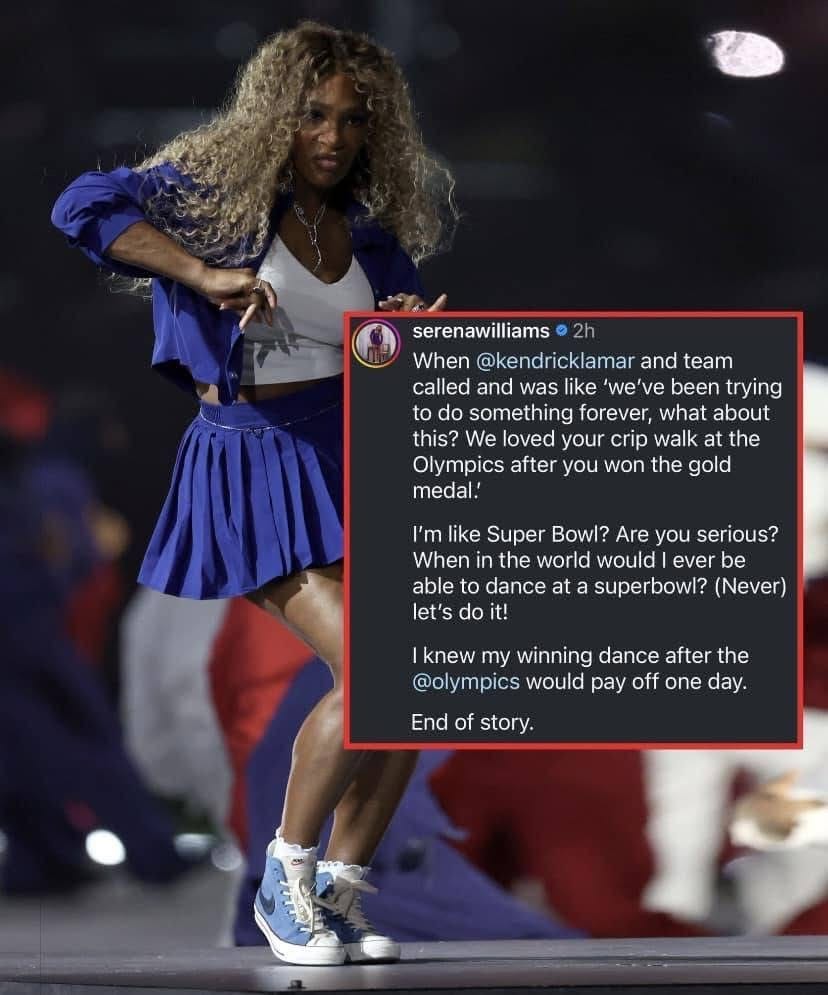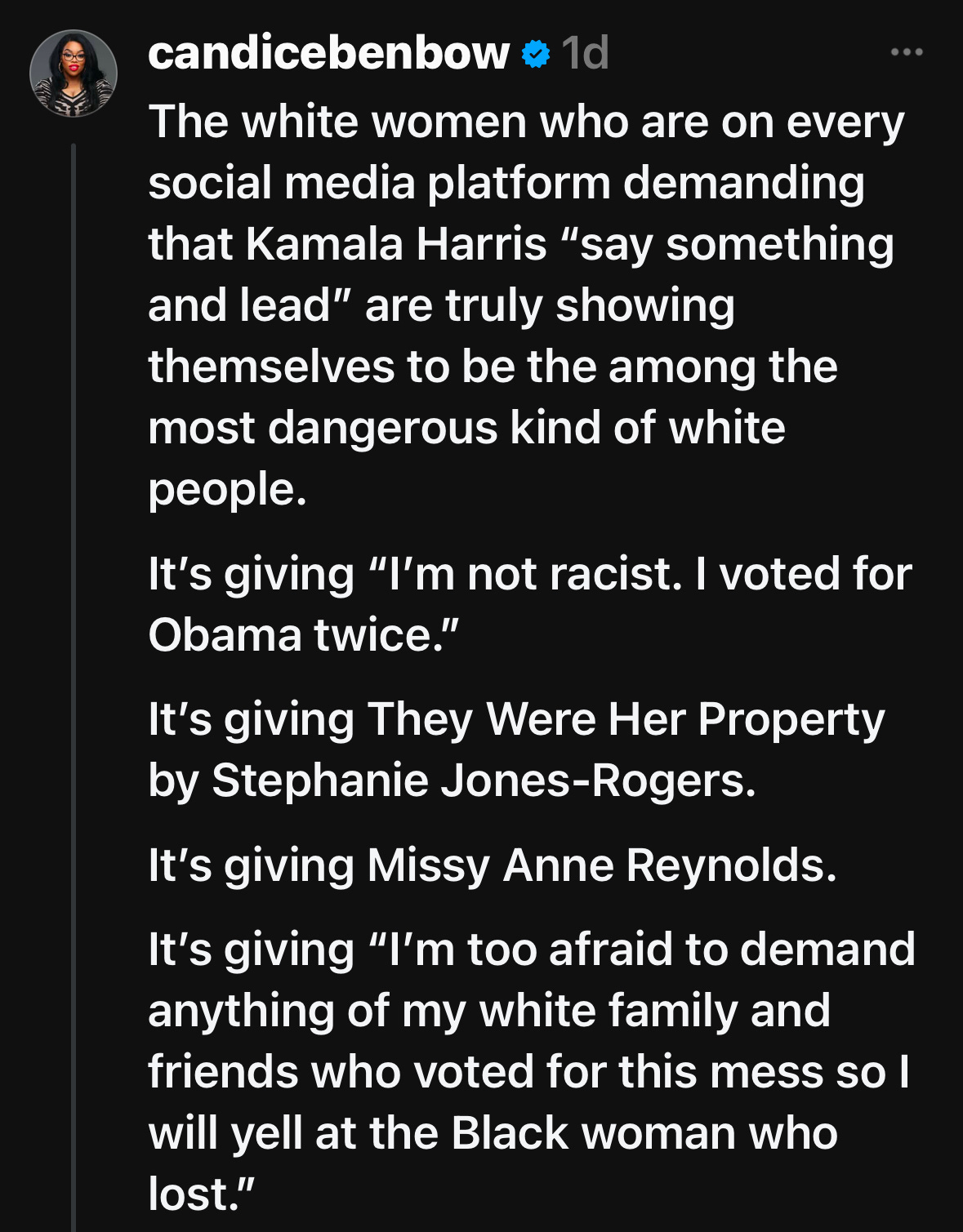Settle Your Quarrels | On Solidarity & Kendrick Lamar
“They’re potential allies.”
”We don’t need allies.”
”Not yet.”
– Parable of the Sower
Happy 16th Day of Black History Month! It’s been a week, hasn’t it? A week since Kendrick Lamar’s halftime performance at Superbowl LIX and since I finished reading Parable of the Sower in what, for me, was record time. And all week, the George Jackson quote highlighted in Alan’s recent post has been living rent-free in my head.
The brilliance of Kendrick Lamar, the wise beyond her years Lauren Olamina, and the prescient wisdom of George Jackson have been shaping my thoughts and the ongoing analysis of where we are and what we should be doing to RESIST.
“Settle your quarrels, come together, understand the reality of our situation, understand that fascism is already here, that people are already dying who could be saved, that generations more will die or live poor butchered half-lives if you fail to act.”
– George Jackson, Blood in My Eye
Settle your quarrels
I've found myself repeating this almost as a mantra while observing the vicious, destructive conversations between progressives, Democrats, and the self-defining left. I repeat it, knowing how critical it is for us to form alliances. I repeat it to ward off the aching difficulty of watching people tear each other apart. George Jackson told us to "come together," and Lauren Olamina intuitively understood the importance of allies.
To be clear, the people who need to come together fall into one of three categories:
1. People who voted or consider themselves to be Democrats
2. People who voted third party
3. People who did not vote at all
I'm absolutely not suggesting that anyone spend energy trying to find common ground with people who voted for or otherwise support 47's regime. There is no utility I can fathom in negotiating with terrorists. Or fascists. A wise woman once said, "Ain't nobody got time for that!" And we don't. We're all under attack.
Solidarity Y’all
As much as I am committed to dying on the hill that solidarity is the (only) move, it is far more difficult in practice. Before we even get to how to move in solidarity, we have to get grounded in its political context and history. Without a deeper understanding of what solidarity is, how it works, and why it is the essential component for resistance, calls for it will be misinterpreted at best and, at worst, ignored.
I'm ever grateful for last summer's TL selection, Solidarity by Leah Hunt-Hendrix & Astra Taylor, for providing a foundation to grapple with what solidarity will require of us. Grounded in historical analysis and exploration of when and why solidarity has been effective and examples of ways solidarity efforts have been undermined and extinguished, it's an invaluable tool for teaching what's possible and what we must guard against.
“Fundamentally, we understand solidarity as the recognition of our inherent interconnectedness, an attempt to build bonds of commonality across our differences. It is an ethos and spur to action rooted in the acknowledgment that our lives are intertwined. Intertwined, however, does not mean indistinguishable-solidarity depends on difference, on recognizing that we are not all exactly alike but that we can still come together and take collective action. It is not unity or sameness, but a way of connecting with others: forging new communities, developing shared visions, and building power to push for social change.
– Solidarity by Leah Hunt-Hendrix & Astra Taylor
This quote debunks some of the knee jerk connotations solidarity has come to hold. It ain’t kumbaya. Solidarity “is not unity or sameness” and it “depends on difference.”
Though people who voted or consider themselves to be Democrats, people who voted third party and people who did not vote at all are not unified or the same, there is also plenty of alignment to build upon. Instead of pointing fingers, blaming, and bucking against each other’s differences, and wearing “we are not the same” as badges of honor, solidarity is a place those differences can be recognized and even leveraged. And with the bar currently in hell, resisting rapidly escalating fascism and the actual coup taking place in Washington, our lives depend on us figuring out how to “come together” and RESIST. Cause what else are we going to do?
Too Soon?
For the first three weeks of 47's regime, the anger, vicious attacks, and what feels like increasing division have held center stage. We have to be honest in acknowledging the fear and frustration people are experiencing, a very human response to watching our immigrant friends and neighbors rounded up, ominous executive orders, and tech bros setting up shop in the Capitol. Chaos is their tactic. And it is taking a toll on us all. We have to know sentiments like FAFO (fuck around and find out) and other myriad ways of saying "I told you so" are fueled by deep pain amid the onslaught of attacks. Also, we must be realistic that many people lack the political education to process what is happening. So, in the face of attacks against us, we've been attacking each other, for we've been trained in a framework that puts all blame on individuals, and that has borne out in interactions with each other. Understanding that solidarity relies on a pragmatic recognition that difference is real and can't, nor shouldn't be, ignored or wished away is practical and will allow us to reckon honestly with wounds long ignored and unacknowledged.
Feet on Necks
And this is where Kendrick Lamar comes in. Admittedly, as his beef with Drake dominated conversations from May to December 2024, I grew sick of it. A genocide was raging, an election with a maniacal tyrant as a candidate was looming, and though I'm a long-time hip-hop head, it began to feel like overkill and a distraction. (Not to mention the capitalist overtones of it all!) I followed along, though, up until the point where Kendrick clearly won the battle.
But what I didn't get then was Kendrick was determined to make a point much bigger than his beef with Drake. In addition to making a slew of personal jabs under the general category of "certified pedophile," other lyrics drew broader connections to what Drake and the music industry were and have historically been guilty of: anti-Blackness. We'll never know whether Kendrick had already intended to go for Drake's jugular when Family Matters dropped. But in hindsight, it's easy to hear the tone of a death knell when Drake rapped:
“Always rappin' like you 'bout to get the slaves freed” –Drake, Family Matters
That line drew a collective gasp from the culture. And any thoughts Kendrick Lamar may have had about walking away from the beef were indeed extinguished at that moment.
Then Kendrick dropped Meet the Grahams and, less than 24 hours later, followed with the now ubiquitous Not Like Us:
“Once upon a time, all of us was in chains
Homie still doubled down callin' us some slaves
Atlanta was the Mecca, buildin' railroads and trains
Bear with me for a second, let me put y'all on game
The settlers was usin' townfolk to make 'em richer
Fast-forward, 2024, you got the same agenda….
No, you not a colleague, you a f*ckin' colonizer” –Kendrick Lamar, Not Like Us
In those lines, Drake was taken to the mat for his own behavior and simultaneously became a proxy for the historical exploitation, erasure, and (economic) violence experienced by Black people, specifically the descendants of the enslaved in America.
In last Sunday's SuperBowl performance, Kendrick said:
“This is bigger than the music.”
And it was. It is. While many of the lyrics assuredly flew over the heads of those who don't follow the intricacies of hip-hop beef, many could appreciate that there was a message "bigger than the music." Others rested in their default anti-Black setting (perhaps subconscious, perhaps not) and decried the Blackness of it all (not one White dancer?) and/or cheapened it to a simple rap beef.
It's baffling and troubling that the New York Times music critic Jon Caramanica offered a puddle deep analysis centered on the beef. How did he watch that performance and not see that something else was afoot? I mean, with THEE Samuel L. Jackson as Uncle Sam? And with a crip walking cameo by the GOAT Serena Williams? It serves to prove the point again about the ubiquity of anti-Blackness and how institutions dismiss and minimize the culture that is routinely castigated (like Serena's crip walk at Wimbledon) yet repeatedly stolen from (like Black artists and tastemakers since forever).
Kendrick and Solidarity Though?
Well, there are layers and levels to this. Walk with me. In our effort to find ground common enough to build upon, we would do well to remember the toll anti-Blackness has taken. To know and hold its roots in tension. To understand the destruction of systemic racism such that we aren't talking over or ignoring groups, we need to forge solidarity with them. And to realize that as much as the house of America is very much on fire, patience will be required to get our bearings even as history and present circumstances bear down, wreaking havoc on our nervous systems and affecting how we engage with each other. Here's what we need to remember about the three groups who need to "come together" as George Jackson advised.
1. Ease Up On Black People Right Now, Especially Black Women
The 92% of Black women who voted to thwart 47 are tired. Been tired. Black women have been talked over and down to for decades even as they have proven time and again to be the most progressive and reliable voting bloc. Folks seeking solidarity need to give it a beat and let this group recover without making demands or speaking in reckless, divisive tones about the moment's urgency. What should we do now? they want to ask. And, absurdly, Where's Kamala? they want to know. As many are settling into the reality of now and feeling themselves as vulnerable as Black people are used to feeling, the very thing NOT to do is to continue to treat Black women like the mules of the world, only suitable for laboring for everyone else's benefit while at the same time being ignored.
2. Ignoring Class is Classless
There are so many people, too many people, completely disengaged from electoral politics. That has been a growing reality for decades. And while it may be worse now than ever, the tactics to engage this population remarkably have not changed. They are shamed and talked down as an afterthought. While folks have crunched numbers and thrown around blame about whether people who voted third party sealed our fate for a repeat Trump presidency, much less has been said about the whopping 36% of voters who opted out. The goal should be meaningfully engaging marginalized and disenfranchised voters with policies that will change their material conditions. Of course, that is much harder than shaming people for not voting. But our collective survival has much more fertile soil there than trying to eke out a thin margin of victory between two parties with almost identical economic policies.
Any honest assessment of the Democratic Party's policies reveals they have not attempted in any profound way to offer something substantive to voters who live in the margins. They keep choosing instead to veer ever right, not just of left but of center. For those who already know this, it is vital to meet marginalized and disenfranchised voters where they are, LISTEN, and, for the love of all things holy, avoid classist lecturing or other behavior that ignores the travesty of our public education system and rampant civic illiteracy.
3. A Genocide is a genocide and will always be a genocide
Amid a ton of anger, hurt, and frustration, those who made a principled decision to cast votes AGAINST genocide are being attacked with a particular viciousness. The Democrats bet heavily and stupidly that everyone on the left would fall in line and vote AGAINST Trump. The problem with their gamble is they underestimated the number of people who could not bear to vote FOR genocide. People who voted third party were clear that the Democratic party needed to do something, do anything really, to stop the U.S. taxpayer-funded assault in Gaza. In the end, Democrats weren't even willing to do the barest of minimums to show that Harris would do something, anything, to reverse course should she be elected. But sadly, though unsurprisingly, third-party voters are the targets of the ire of everyone feeling the effects of 47. But as Lil Wayne once said, numbers don't lie:
"The Republican victory in 2024 cannot be explained by the existence of third parties."
–Northwestern University's Data Science faculty director Thomas William Miller said on November 6
Third-party voters remain an easy target, however, because they are vocal, as they should be, about the failures of the Biden administration and Harris's unwillingness to signal in any profound way that things would have been different for Palestinians under her administration.
Meanwhile, the truth in the numbers lies in all of the voters the Democrats failed to inspire with policies.
Nearly 90 million Americans didn't vote – which is more than the number of people who voted for Trump or Harris – The Guardian
For us to move forward in solidarity, we've got to help each other understand there is more utility in inspiring those who did not vote rather than continuing the Monday morning quarterback attacks on those who were engaged enough to either vote AGAINST Trump and/or AGAINST genocide. To be clear, it is a waste of effort to convince anyone it would have been better to vote for an administration that carried on a genocide. We must allow room to disagree on the tactics rather than insisting people abandon their principles. Many people voted for Harris for tactical reasons, while others held a principled line against genocide. Neither side is wrong. And both sides, as well as the millions who didn’t vote, are in clear and present danger during 47's regime. We've got to know that. And move accordingly.
Be Like Kendrick
No, this is not an invitation to sing Not Like Us full chested. (Those who have permission to do already know who they are.)
Instead this is a call to, like Kendrick did, keep our feet on the necks of, not Drake, but the systems he came to represent and the many others that block our path toward liberation:
Anti-Blackness
Racial capitalism
Xenophobia
Transphobia
Misogyny
Ableism
Imperialism
Settler Colonialism
In other words, any and every ism and ill that impedes freedom. It is our charge, task and sacred duty to fight like hell against every attempt to limit liberation, our own and anyone else's. We must speak up and show up for each other, especially the most marginalized, especially for the groups and identities that we do not belong to.
“Solidarity is the tenderness of the peoples.” ― Giocanda Belli
And difficult as it seems, I know we’ll get there. By and by as the old folks say. With love, patience, understanding, and solidarity.
In Solidarity Always,
connease
ps. Here are two ways to RESIST








The beef between Kendrick Lamar, and Drake like so many beefs before them in the Hip Hop community are personal. Very few Hip Hop artists think globally, Noname is one of those artists. Noname is an artist who is a prison abolitionist and has created a book club that highlights the contributions of Black woman. Their book club has chapters across many cities but also has chapters inside prisons. I feel her efforts do a lot of work for the radical idea of solidarity. Currently the book club is not doing well financially, if people feel they would like to know more about the organization or contribute they can do so here: https://www.patreon.com/nonamebooks